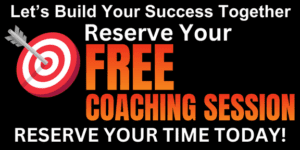Preparing well for a sales conversation is essential for getting the best results possible. Among the things you need to do to prepare includes gathering questions to ask, researching the prospect, having prices ready for what you offer, and evaluating whether or not a prospect is a good fit. In this article we cover some of these elements for effectively preparing for a sales conversation.
Anticipate Prospect Questions
Create a list of questions you want to ask the prospect as well as ones that you anticipate the prospect will ask you. Some of the common questions that prospects ask include:
• The price of what you offer, how you charge, what is included in the service, and expected results.
• Whether there are any extra costs, such as for tools.
• When can you get started and deliver what you offer.
• Is there anything that could go wrong in the process.
Asking the Prospect Questions
Being prepared to ask good questions of your prospect will help you to understand their business, their challenges, and to offer them a good solution. Here are some things to consider:
• What is going well in their business and what could be improved.
• Where are they now and where do they want to take their business.
• What are their goals for the next few months or years.
• Ask specific questions related to the products and services they are interested in.
• Ask them if there is anything else they would like to address.
Prepare Your Pricing
Before you go into a meeting with a prospect, prepare estimates of pricing for services that you may offer. It’s good to offer packaged or retainer pricing whenever possible so that you can stay within the budget of the customer. If your pricing does not work for the customer, you may be able to offer alternative services that can fit their budget. However, don’t let the customer set your prices for you. This can result in an arrangement that is not profitable for you.
Sell the Benefits
Focus on selling the benefits of your product or service rather than the features. Besides just price, consider how the customer will benefit from what you offer. For example, your service might save them a lot of time. Also, ask the customer what is most important for them so that you can focus on selling that benefit.
Know When to Walk Away
For various reasons, not every conversation will lead to a deal, and this is okay. Decide in advance what items would cause you to decline working with a customer. For example, customers who cannot meet your minimum budget for working together may not be the best use of your time. Instead of working with them, you can spend your time on finding clients who are a good fit for your business.
A coach can give you guidance for increasing your sales results. Get in touch today!




